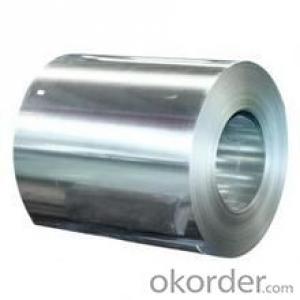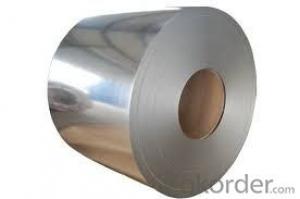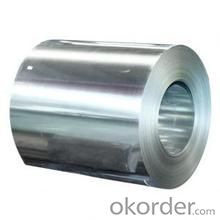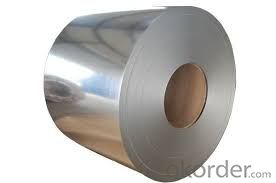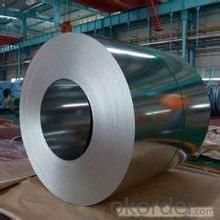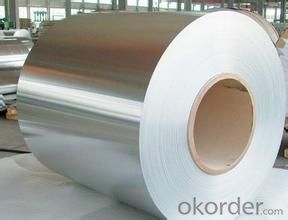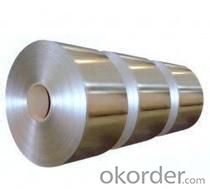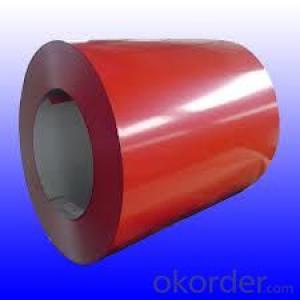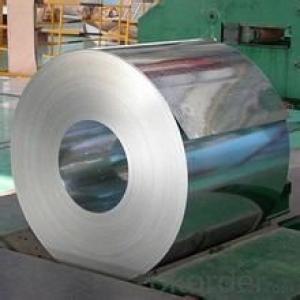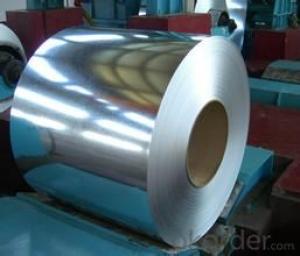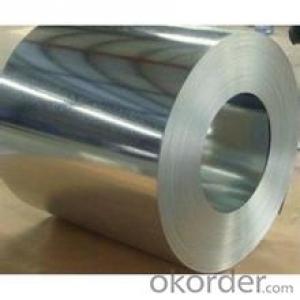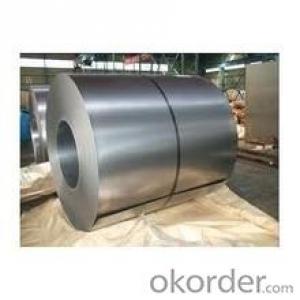good hot-dip galvanized/ auzinc Steel -SGCC in China
- Loading Port:
- Tianjin
- Payment Terms:
- TT OR LC
- Min Order Qty:
- 100 m.t.
- Supply Capability:
- 5000000 m.t./month
OKorder Service Pledge
OKorder Financial Service
You Might Also Like
Description:
Hot-dip aluzinc steel sheet is substrated on cold rolled steel (CRC) in various strength and specification. Coating composition is 55% aluminum in weight ratio, 43.4% zinc, and 1.5% silicon, with excellent corrosion and heat resistance performance.
Specifications:
1.Mateials:SGCC,DX51D / DX52D /S250,280GD
2.Size:width:600-1250mm(900mm,1215mm,1250mm,1000mm the most common)
thickness:0.15-2.0mm
length:1000-6000mm,as your require
3.Zinc coating :60-180g( as required)
4.Coil id:508mm
5.Coil weight: 3-5MT(as required)
6. Surface:regular/mini/zero spangle, chromated, skin pass, dry etc.
Applications:
Galvalume Coil widely used for roofing products, It is also the ideal base material for Prepainted Steel Coil.
1. roofing
2. gutters
3. unexposed automotive parts
4. appliances
5. furniture
6. outdoor cabinetry
Images:
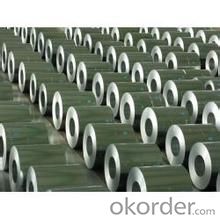
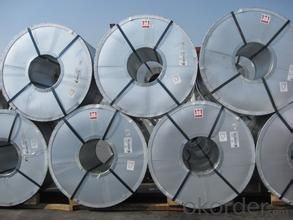
Production of cold formed corrugated sheets and profiles for roofing, cladding, decking, tiles, sandwich walls, rainwater protective systems, air conditioning duct as well as electrical appliances and engineering.
- Q: What is the maximum temperature that steel coils can withstand?
- The maximum temperature that steel coils can withstand typically depends on the grade of steel being used. However, in general, steel coils can withstand temperatures up to around 1,200 to 1,300 degrees Celsius (2,192 to 2,372 degrees Fahrenheit) before they start to lose their structural integrity.
- Q: I want to know if it is possible to make regular steel stainless.From what I understand stainless consist of chromium about 10 percent I think.Any way I'm wondering if properties can be added in a process or can this only be possible during actual manufacturing of the steel.And I'm not talking about chrome like stainless steel that's not to shiny.
- no an alloy essentiallly does not exibit its constituent properties if you want to add anymore the thing should be molten and hot and homogenous homogenous being the key word and no ss essentiallly mean that thing only
- Q: At what temperature does steel start to warp or soften.
- It depends upon the composition of steel. Carbon steel, which does not have many alloying elements, softens around 1200C while with alloying elements, this transition temperature either drops or raises depending upon what is added. Higher carbon makes this temperature drop. This is a very important question for forging since if a lower temperature is used, forging won't be easy and at higher than softening temperature, it is not easy to handle. The temperature at which steel begins to soften is, in general, much above what the metallurgists call AC1 or AC3 temperature.
- Q: Is steel framing eco friendly? Why or why not.
- Most of it is made from recycled iron and steel. You can also climb a ladder carrying a dozen steel studs far easier than you can lumber studs. It is this latter part why it is so popular in some areas.
- Q: How are steel coils used in the manufacturing of suspension springs?
- Steel coils are used in the manufacturing of suspension springs as they are wound into a specific shape and size to provide the necessary flexibility and resilience required to absorb shocks and vibrations in a vehicle's suspension system. The coils are designed to support the weight of the vehicle and provide a smooth and comfortable ride by compressing and expanding as the vehicle moves over uneven surfaces.
- Q: What types of steel are used in steel coils?
- There are various types of steel that are commonly used in steel coils, including carbon steel, stainless steel, and alloy steel.
- Q: How are steel coils used in automotive manufacturing?
- Steel coils are used in automotive manufacturing to create various components such as body panels, frames, and suspension parts. These coils are unwound, shaped, and cut into specific sizes and shapes to fit the required design. The steel's strength, durability, and flexibility make it an ideal material for ensuring the safety and structural integrity of vehicles.
- Q: Can steel coils be stretched?
- Yes, steel coils can be stretched.
- Q: How do steel coils contribute to the HVACR industry?
- Steel coils play a crucial role in the HVACR (Heating, Ventilation, Air Conditioning, and Refrigeration) industry by serving as a primary component in various applications. These coils are typically made from a durable and corrosion-resistant material, such as stainless steel or galvanized steel, which ensures their longevity in demanding HVACR environments. One of the most common uses of steel coils in the HVACR industry is in air conditioning systems. These coils are responsible for transferring heat between the refrigerant and the surrounding air. The coils, often referred to as evaporator coils, absorb heat from the indoor air, cooling it down and removing moisture. They then release the heat outside through a condenser coil, allowing for efficient cooling and dehumidification of the air. Steel coils are also utilized in heat exchangers, which are vital components in HVACR systems. Heat exchangers transfer thermal energy between two fluids, allowing for efficient heating or cooling. Steel coils, often in the form of finned tubes, provide a large surface area for heat transfer and help enhance the overall efficiency of the system. Furthermore, steel coils are extensively used in the construction of ductwork, which is the network of channels that distribute conditioned air throughout a building. These coils are formed into various shapes and sizes to fit specific ductwork designs, ensuring optimal airflow and temperature control. Additionally, the durability and strength of steel coils make them suitable for withstanding the pressure and forces exerted by airflows in duct systems. In refrigeration systems, steel coils are integral to the process of transferring heat out of an enclosed space, such as a refrigerator or freezer. The coils, often referred to as condenser coils, release heat from the refrigerant as it changes from a high-pressure gas to a high-pressure liquid. This allows for the cooling and preservation of perishable goods, making steel coils essential in the food service and cold storage industries. Overall, steel coils contribute significantly to the HVACR industry by enabling efficient heat transfer, optimal temperature control, and reliable operation of various HVACR systems. Their durability, corrosion resistance, and versatility make them a crucial component in providing comfortable and controlled environments in residential, commercial, and industrial settings.
- Q: How are steel coils used in the appliance industry?
- Steel coils are used in the appliance industry for a variety of purposes such as manufacturing parts, components, and frames for appliances like refrigerators, washing machines, and ovens. The coils are processed and shaped into specific forms to provide strength, durability, and stability to the appliances.
Send your message to us
good hot-dip galvanized/ auzinc Steel -SGCC in China
- Loading Port:
- Tianjin
- Payment Terms:
- TT OR LC
- Min Order Qty:
- 100 m.t.
- Supply Capability:
- 5000000 m.t./month
OKorder Service Pledge
OKorder Financial Service
Similar products
Hot products
Hot Searches
Related keywords
